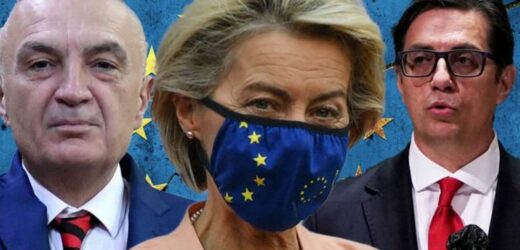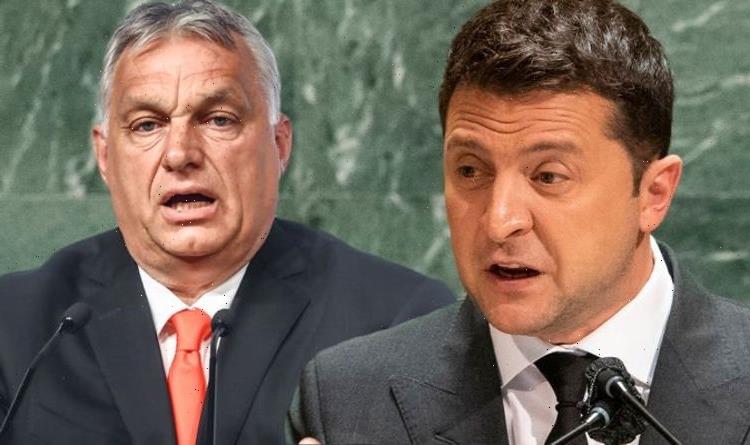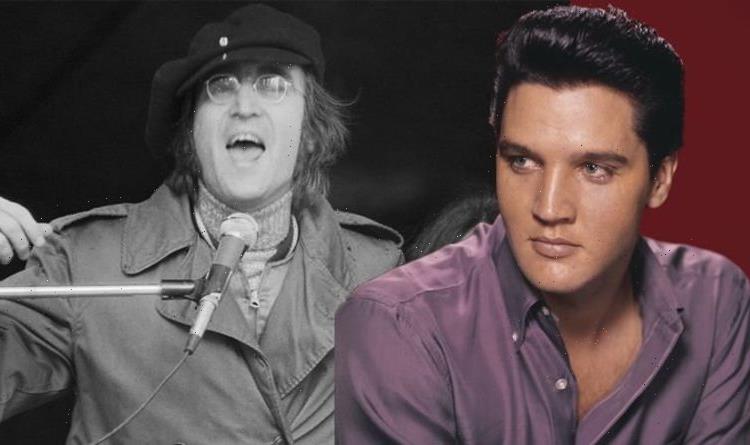EU: Albania and Macedonia rejection is ‘major blow’ says MEP
We use your sign-up to provide content in ways you’ve consented to and to improve our understanding of you. This may include adverts from us and 3rd parties based on our understanding. You can unsubscribe at any time. More info
The European Union has expanded and reduced several times since its inception – most recently with the joining of Mayotte in 2014 and the loss of the UK in 2020. As of this year, accession negotiations are underway with five new countries including Albania, Montenegro, North Macedonia, Serbia and Turkey. But the leaders of these nations have vehemently criticised the bloc for its slow progress with these talks. But could change really be on the horizon?
The European Commission President Ursula von der Leyen revealed the bloc intends to begin accession negotiations with Albania and North Macedonia before the end of the year.
She said: “Allow me to make one thing clear, Albania’s future is in the European Union.”
Ms von der Leyen made the comments during a visit to a school in the country.
She added: “Albania has clearly delivered all that we have been asking for … it is us who have to deliver.
“I really am determined to make it happen.”


The Commission President addressed the accession talks after a meeting with PrimeMinister Edi Rama in Tirana.
The comments were made during the first of six stops Ms von der Leyen intends to make over the coming days according to Euronews.
Earlier today, Commission spokeswoman Dana Spinant revealed the Commission was pushing for progress.
She said: “The EU commission president is pushing for the start of intergovernmental conferences for both Albania and North Macedonia before the end of the year.”

Albania applied for EU membership on April 28, 2009, and accession talks began in March 2020.
North Macedonia submitted its membership application in 2004 and it became a candidate for accession in 2005.
The EU gave its formal approval to begin accession talks with North Macedonia in March 2020.
But Bulgaria blocked the nation’s official start of accession negotiations in November 2020 over what it perceived as slow progress on the implementation of the 2017 Friendship Treaty between the two countries.
DON’T MISS
Macron ‘resets’ relationship with Biden [INSIGHT]
Brexit warning: EU red tape to clobber firms in Gibraltar and NI [EXPLAINER]
China ready to ‘bridge differences’ with EU [ANALYSIS]

Earlier this year, leaders from Serbia, Albania and North Macedonia flagrantly disregarded EU wishes by announcing plans to push for a “mini-Schengen” arrangement.
The announcement was made in response to continued delays in membership talks between these nations and the EU.
The mini-Schengen area is a planned economic zone between Albania, Kosovo, North Macedonia and Serbia. The area was first announced in 2019 and now the countries have vowed to press ahead with plans to implement this zone by the end of the year as aggravations towards the EU grow over the delays in the membership process.

The accord would open up the possibility for free movement to be extended between these three nations.
Commission Vice-President Margaritis Schinas has voiced concerns about the mini-Schengen arrangement.
In March, he said: “In no way will the intention to return to our usual Schengen, removing the current restrictions on our internal borders, be replaced by a kind of regional mini Schengens that fragment our single market and discriminate against non-participating Member States. This is not possible.”
Mr Schinas added he did not want a “Baltic travel bubble” to become a long-term feature in Europe.
Many EU officials believe the mini-Schengen area would undermine the region’s European integration and the Commission has said the initiative of Edi Rama, Aleksandar Vučić and Zoran Zaev is completely incompatible with the initiative for regional development together with Bosnia and Herzegovina, Montenegro and Kosovo.
Fundamentally, the EU argues the mini-Schengen would impede the strategic partnership between the EU and the Balkan countries.
Ms von der Leyen told Albania she understood the country’s frustrations, but that the EU owed it to “the Albanian youth who believe in the European future.”
The Commission leader added: “The European team will stand by you. We had a problem in the beginning with neighbours of the Western Balkans, but we will overcome it.
“The EU has donated 430 thousand doses in Albania, they will continue. Vaccines save lives, save loved ones.
“The faster the Berlin Process, the faster the EU integration. Albania deserves and will be in the EU, there is no doubt.
“I give my full support to the negotiations with Albania and Northern Macedonia as soon as possible.”
Source: Read Full Article


